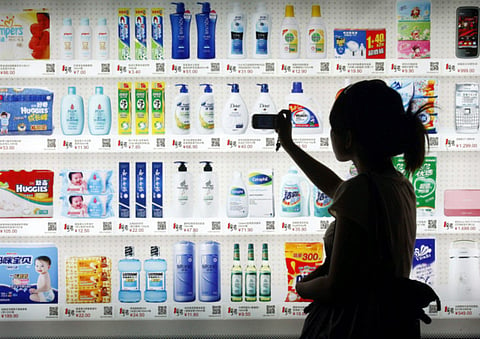Digital is the perfect platform
Innovative programmes are proving to be the perfect channels for recent social, local and mobile marketing efforts and can even operate independently of smartphones

Branching off from the hyperlocal movement that came into being a few years ago, the new trend of merging social, local and mobile marketing efforts is the result of waiting for technology to evolve and for mobile usage to reach critical mass. SoLoMo is what it is abbreviated to — social, local and mobile.
High-density locations such as malls, airports and urban city centres are getting wired with incentives and deals that compel consumers to buy and spend. These consumers are as adept at using their phones to receive and deploy information, as they are at searching for it. Simultaneously retailers have been looking for innovative ways to boost sales as shoppers remain cautious with spending. The solution that seemingly fits all is digital loyalty.
UAE retailer Apparel Group has devised the country’s first cardless loyalty programme, Club Apparel, where customers can shop and redeem points for rewards at 380 plus stores. To become a member, collect points and receive rewards, all you need is a working mobile connection.
Small retailers in the US have discovered a better way to entice customers than the hitherto popular online deals offered by companies such as Groupon. They are issuing loyalty cards that reward buyers for return visits. These cards are digital instead of physical and are often linked to the credit cards that consumers already use.
Card-linked marketing solutions provider Cartera Commerce illustrates the best use of digital loyalty cards. It lets merchants provide a discount or reward to consumers each time a purchase is made, simply by swiping a card. The programme is enabled to collect data regarding when customers shop, how often they return and how much they spend, which far exceeds the scope of paper punch cards and makes them infinitely more valuable than coupons.
Square, an American mobile payment start-up, is also spearheading retail customer loyalty. Its new digital loyalty card is designed for businesses to attract or retain customers and for customers to track rewards. The Pay with Square app — available on iPhones and Android-based phones — eliminates the need for shoppers to carry cards and the software automatically recognises them when they walk into a store. Competing with the likes of Groupon, Google, PayPal, Foursquare and Belly, more than two million individuals and businesses have registered to use Square since its launch mid-year.
BillGuard, a firm that protects credit card users against fraudulent charges, integrated with Lemon last month. Lemon’s mobile application stores digital versions of all kinds of cards — credit, debit, identity, gift and loyalty — and the new integration, which can be switched on within the app with a tap, authenticates payment with the user’s bank account. Around 5,000 American banks and credit unions are already linked to the system.
Also last month, retail giant Target launched a service that allows customers to send a digital gift card to a phone or email address from their website, merely by scanning the quick response code. Recipients, in turn, can save a mobile version of the digital gift card or access the barcode with a mobile phone.
Boston-based Aite Group, an independent research and advisory firm, says about 900 million transactions in the US will be conducted with cards connected to digital loyalty programmes in 2015, generating $1.7 billion (about Dh6.2 billion) in revenue for the providers. This is up from $300 million last year.
Gaining traction around the globe
The trend is picking up elsewhere. At the other end of the world, Australia is equally adept at digital loyalty. Starbucks, which has processed more than 70 million mobile payment transactions since early last year, provides the digital equivalent of a loyalty card on phones. Independent Grocers of Australia sends customers a weekly SMS with targeted specials that can be instantly actioned in stores. This particular approach demonstrates that loyalty can be delivered digitally even without smartphones and has proven three times more effective than catalogues and coupons.
In Africa, Digital Solutions Group’s partnership with CardMobili has resulted in Digital Cards, which issues loyalty cards, coupons and promotional material straight to phones. In the Philippines, MyLo Mobile’s e-couponing through smartphones rewards customers with points for likes and sharing content, which can be redeemed for products. UK mobile operator O2’s Top-up Surprises programme offers prizes to customers when they add credit to their account.
Globally, Marriott’s Rewards Digital Membership Card is now available on iPhones, and Android and BlackBerry phones — in English, French, German, Spanish or Chinese.
What the pundits predict
For the industry to grow and sustain itself, consumers need to be convinced that mobile payments are as safe and as handy as cash or credit cards. Payment industry officials attending the CeBIT Future of Payments conference in Sydney last month pointed out that banks, telcos and internet firms will have to fight a war to win the global default app for mobile loyalty programmes. More than one speaker reiterated the concerns about personal privacy, indicating a clear advantage to banks.
Meanwhile, speakers at October’s FutureM marketing conference in Boston said there is much in store for the store of the future, as retailers look to incorporate the best of the digital world into their physical locations.
While one part of the problem is that there are too many players in the game, the other is that it has not grown in many parts of the world, including the Middle East. One or a couple of players need to make a leap, multiply reach and gain acceptance among consumers, merchants, telcos, and phone makers.
If SoLoMo has proven so popular so suddenly, there is no reason why digital loyalty should not stay and perhaps, take on the moniker of DiLo.
Sign up for the Daily Briefing
Get the latest news and updates straight to your inbox



